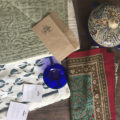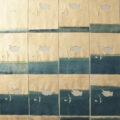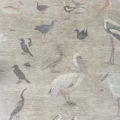Handmade in India
This week I share with you one of the most referred to booked in our studio– Handmade in India, edited by Aditi Ranjan. Handmade in India is a one of a kind treasury of traditional crafts from every corner of the country, outlining in detail the historical, social and cultural influences on the processes of each craft. The photographs are beautiful and take you through a stunning visual journey to every corner of India. You might know already some popular crafts such as the phulkari and bagh textiles of Punjab, thangka painting in Ladakh and Himachal Pradesh, Chikankari embroidery of Lucknow, papier-mâché in Jammu and Kashmir or ajrak and kite making in Gujarat This book however introduces you to a whole range of lessor known crafts such as paabuor stitched boots from Ladakh, jadupatua paintings from Jharkhand, the making of Kathakali and Theyyam headgear, khadi or tinsel printing in Ahmedabad.

A woman wears an Areca leaf cap in Karnataka

Toys made from soft wood from Nirmal in Adilabad
If you’ve grown up in India, it is most likely that you are aware of at least a handful of traditional craft practices. Traditional handmade crafts find their way into our wardrobes, homes and our conversations. They’re present in the everyday life on the streets of our cities, towns, villages and spotted at exhibitions, markets and social gatherings. My knowledge and appreciation of handmade crafts comes as it does for most Indians from the family. I later developed a better understanding of crafts and the issues faced by crafts women and men people from a formal education, friends and clients who’d worked extensively in the field. Self learning has also helped in understanding craft practices better and it has often been in the form of reading–this is one of the books I refer to. It has served as an excellent reference book at work and I recently found my self reaching for it again while at our Goa studio. We were looking to source traditional Goan hand made crafts for a client and the book helped introduce us to a whole new range of crafts in the region.
The pictures here, taken from the book, were chosen for their depictions of the natural elegance and colour that is displayed extensively in the everyday street life of India — style that is naturally developed and not manufactured by industry, a style that was naturally sustainable before sustainability was trendy.
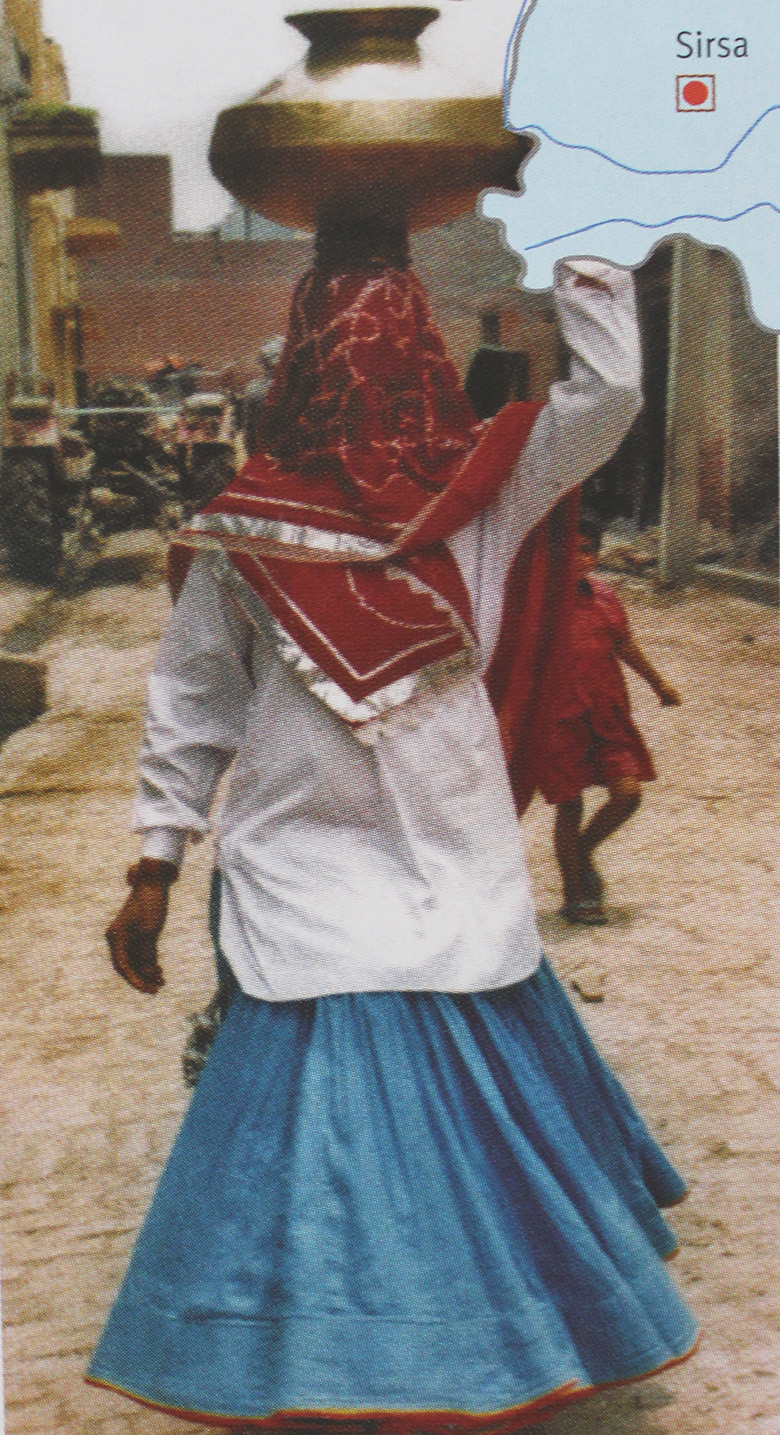
A Jat woman in Haryana wears a Kameez (shirt) over a Daman (skirt) that is made of 22 yards of cloth and an Odhni (veil)
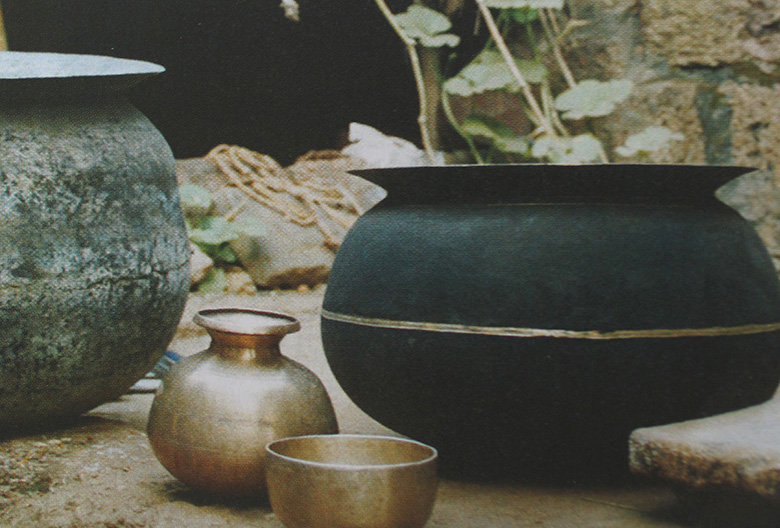
A display of pots made by Kansari craftsmen from bell metal and brass in Bhatimunda, Odhisa

A clay pot gets finishing touches in Kodagu



